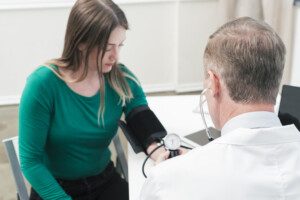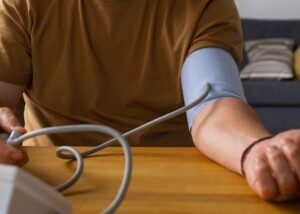Teens can get very sick from high blood pressure; a young body offers NO protection against the dangers of high blood pressure.
“High blood pressure in teens is dangerous,” says Dr. Lisa Lewis, MD, a board certified pediatrician in Fort Worth, Texas, and author of “Feed the Baby Hummus, Pediatrician-Backed Secrets from Cultures Around the World.”
Dr. Lewis explains, “It’s called ‘the silent killer’ because many teens and adults don’t realize their blood pressure is high.
“The longer a teenager sits with high blood pressure, the more the risk of complications occurs.
“Adolescent high blood pressure may cause damage to the heart and blood vessels.
“Prolonged high blood pressure in teens into adulthood dramatically increases the risk of heart attack, aneurysm and stroke later in life.”
An aneurysm is a bulge in a blood vessel. This bulge can occur at any point along the aorta or in the brain. If it ruptures, death can occur within minutes.
It Can’t Be Said Too Much
Teens can suffer from organ damage stemming from high blood pressure, says the American Heart Association Council on Hypertension.
• Damage to the heart
• Damage to the blood vessels
“At any age, high blood pressure can be dangerous for the body,” continues Dr. Lewis.
“Although not as common, some teens with high blood pressure have undiagnosed kidney disease, and this could lead to kidney failure.”
Study Shows High Blood Pressure Is Harmful to Teenagers
• 180 teens 914-17) were in the study, led by Elaine M. Urbina, MD, director of preventive cardiology, Cincinnati Children’s Hospital Medical Center, OH.
• Organ damage (heart, vessel) was found in the mid-risk and high-risk groups.
“Some adolescents may have organ damage related to blood pressure and are not targeted for therapy,” points out Dr. Urbina in the Sept. 2017 report.
Imaging of the heart for teens with hypertension may prove useful to determine the extent of therapy.



























